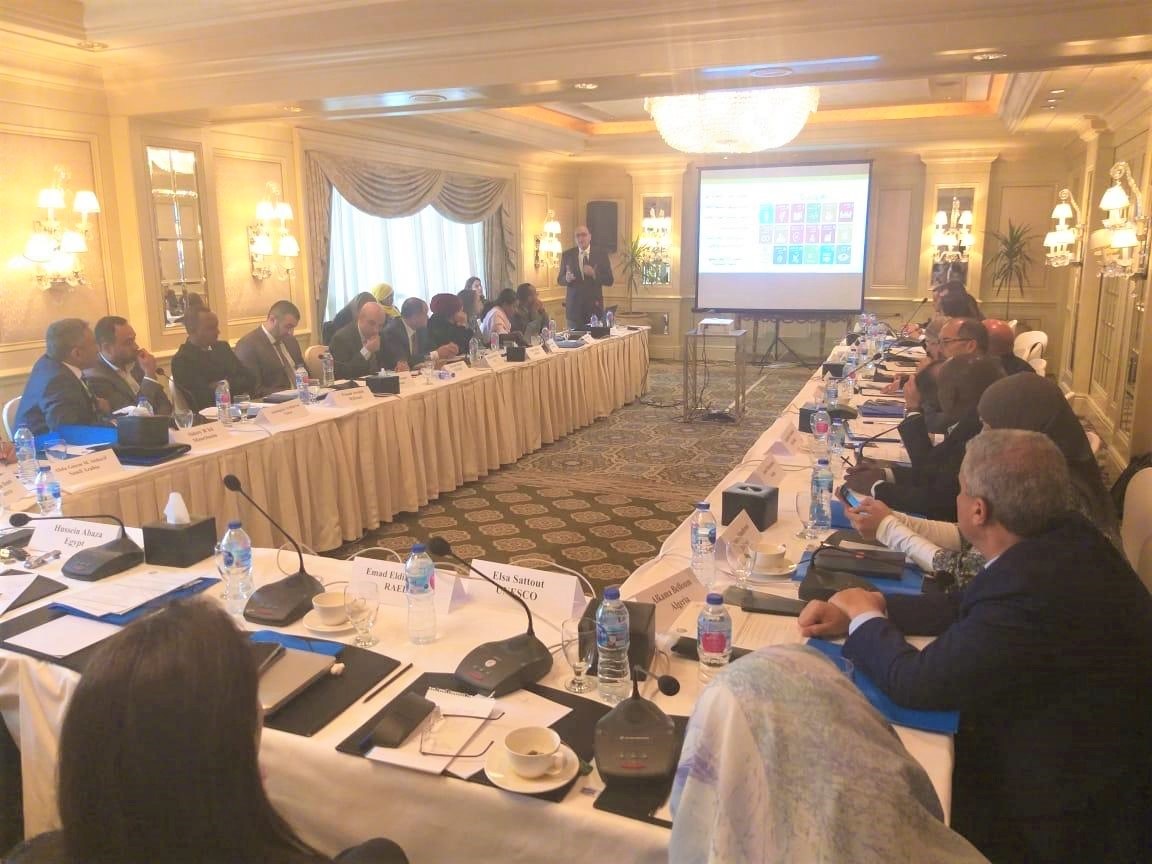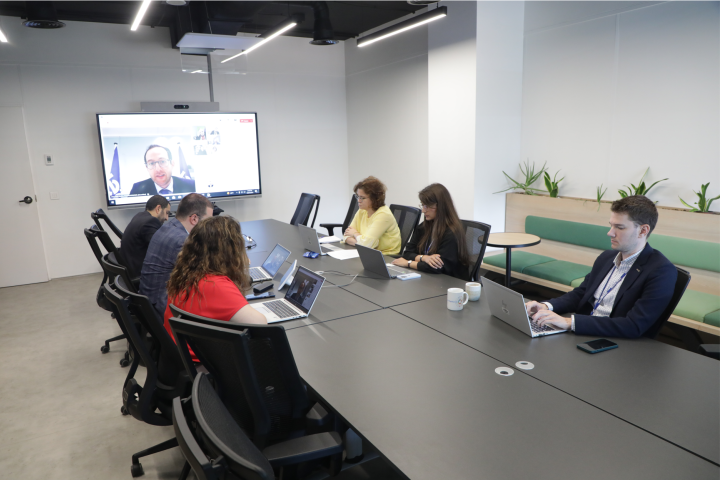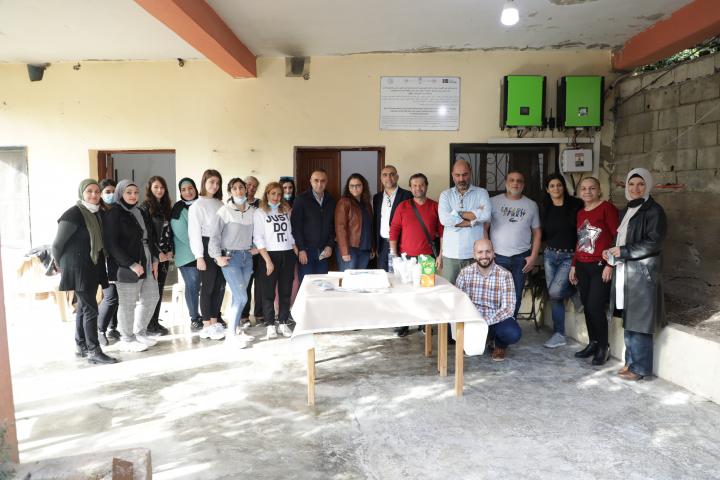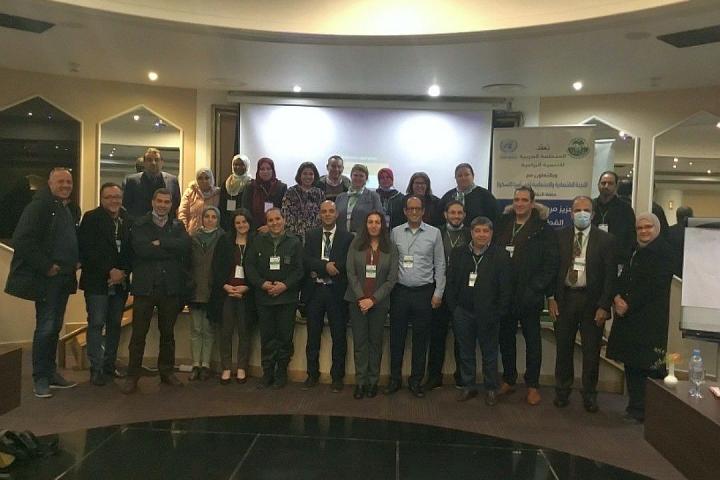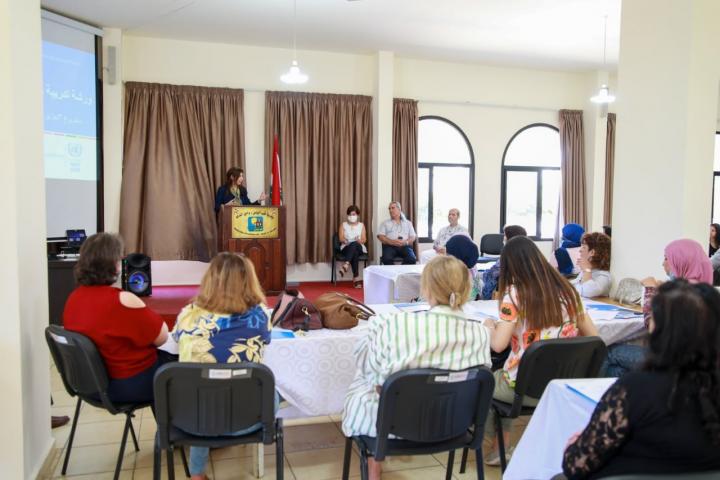The meeting was held in Cairo on 27-28 February and was organized by the Economic and Social Commission for Western Asia (ESCWA) in cooperation with the League of Arab States (LAS), and the United Nations Environment (UN Environment).
The meeting delved into Sustainable Development Goals (SDGs) related to environmental education, the promotion of green jobs, decoupling economic growth from environmental degradation, and hence adopting more sustainable production and consumption patterns, particularly amid instability and crises in several Arab countries along with their negative effects on people and environment. Conferees also discussed climate change in general, being a cross-cutting issue, and it will be more deeply addressed in a specific consultation meeting mid-March in Beirut.
Speaking on behalf of ESCWA, the Executive Director of the Amman-based ESCWA Technology Centre (ETC), Ms. Reem Nejdawi, called in her opening remarks for a better development of capacities related to boosting the necessary skills and knowledge to inform decision-making that will prevent further environment deterioration and address the damages incurred. This would pave the way for just and all-inclusive societies that can guarantee sustainability of natural resources for current and future generations.
Meanwhile, the Director of the Department of Environment, Housing and Water Resources at LAS, Mr. Djamaleddine Djaballah, tackled the interconnection between the environmental dimension and economic growth. “It requires ensuring equality and including all segments, and creating green productive and decent job opportunities,” he added.
“The region ought to promote environmental education and develop capacities in green sectors that would reduce energy and raw material consumption, reduce waste and pollution, limit greenhouse gas emissions, adapt to climate change,” Ms. Nejdawi underscored. “This would entail to look into available financing and issues related to the transfer of proper technology that can fuel more sustainable economic growth pathways,” she added.
Mr. Djaballah tackled the additional burden in the Arab region of occupation, armed conflicts and instability, as well as the resulting migration and displacement that have negative effects on natural resources and environment. He stressed that all these aspirations can see the light through the provision of the needed financial and human resources, and through the enhancement of financing mechanisms, in addition to the international and regional cooperation to urge for environment-related investments in the Arab region so as to meet the needs of sustainable development.
The outcome document of the meeting will be submitted to the 2019 AFSD to inform regional preparations for the High-Level Political Forum (HLPF). The theme for the 2019 sessions of the AFSD and HLPF will focus on “Empowering People and Ensuring Inclusiveness and Equality.”
*****
For more information:
-Nabil Abu-Dargham, Head, ESCWA Communication and Information Unit,
+961-70-993-144; email: dargham@un.org
-Ms Rania Harb, Public Information Assistant, +961-70-008-879; email: harb1@un.org
